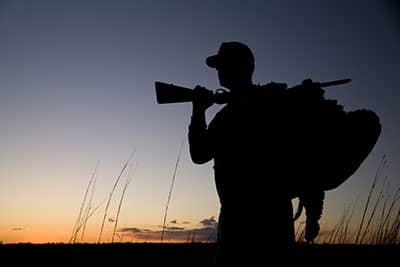Know How to Understand The Basics of Turkey Hunting
Turkey hunting is a popular outdoor hobby, but there are nuances. Learn the basics so your time in the field is rewarding right from the start.
Spot the Signs of Turkey
Understand how turkeys behave in the wild. These birds like to roost off the ground overnight for safety, but they spend their days strutting around in fields and woods looking for food and mates. When planning a hunt, search for signs of turkeys a day or two before.
To find the roost, check for feathers, droppings, and scratches under trees. Turkeys claw up the ground to clear away leaves and debris when they scrabble for food. Walk along the edges of fields looking for any indications of their passing.
You might even catch sight of the birds themselves. Note where you've seen them and scope out a few good spots to set up when you return.
Learn How To Call Turkeys
Bird calls help you communicate with your prey. As a newbie, practice a few essential calls at home and experiment while you're in the field to fine-tune your results.
Locator Calls
These calls imitate the sound of a predator. When turkeys hear this sound, they often respond by issuing an alarm gobble.
- Owl Hoot Calls - This is the first choice for the early morning while the birds still roost.
- Crow Calls - Sound these during the day while turkeys are on the ground.
- Hawk Call - This one is for when the crow calls fail to get a response.
- Duck Call - Use it to draw in an aggressive male during the mating season.
- Coyote Call - Try this call when all else fails.
When you hear the turkey respond, move quickly and quietly to the location you heard the sound. Locator calls are great for spotting turkeys the day before or if you need to move from your starting position to find where they've gone.
Turkey Calls
Turkey calls imitate sounds the birds are familiar with and entice the males away from the females so you can take your shot.
- Push-Pin Caller - A limited but straightforward device requiring only one hand to use.
- Friction Caller - Perfect for beginners, draws a striker across a friction plate to create sound
- Box Caller - A soundboard and box that imitates several sounds when struck
- Diaphragm Caller - Makes turkey calls with your mouth while keeping hands free
Practice with your caller before you get out into the field. Mimic the natural sounds and cadence of birds and don't overdo it. Too much sound is unnatural and makes them suspicious.
Set Up for Turkey Hunting
Get to the field early to set up and find a spot along the edge of an open area. Let the turkeys come to you and avoid hunting too close to the roost. Taking a shot near their place of safety might scare them away and ruin a good hunting spot.
Use decoys to coax them towards your position. Decoys mimic the look and motion of other turkeys, drawing in males eager to mate or fend off challengers.
Prepare for the Outdoors
You may be outdoors all day. It's not uncommon for turkeys to drift away from your starting location. Be ready to face the elements and hike through the terrain after them. Get the outdoor and field gear you need to stay dry and comfortable while hunting turkeys.










